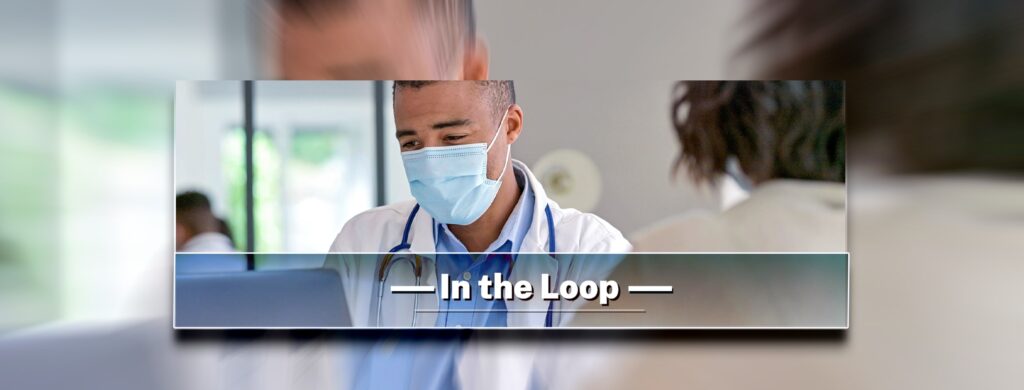The U.S. Declares Monkeypox a Public Health Emergency
The United States recently declared monkeypox a public health emergency (PHE). The announcement came during a briefing with the U.S. Department of Health and Human Services (HHS).
The U.S. has confirmed thousands of cases of monkeypox in all but two states—Montana and Wyoming. The HHS’ PHE declaration is intended to help mobilize more resources to fight the outbreak and strengthen and accelerate the Biden adminis- tration’s response to monkeypox.
“Ending the monkeypox outbreak is a critical priority for the Biden-Harris administration. We are taking our response to the next level by declaring a public health emergency.”
– HHS Secretary Xavier Becerra
What You Need to Know About Monkeypox
The Centers for Disease Control and Prevention (CDC) states that monkeypox usually begins with symptoms including fever, headache, muscle aches, backache, chills and swollen lymph nodes. The incubation period from the time of infection to first showing symptoms is typically seven to 14 days, but this range can vary. Monkeypox can spread in a few ways, including:
- Direct contact with monkeypox rash, scabs or body fluids from a person with monkeypox
- Touching objects, fabrics (clothing, bedding or towels) and surfaces someone with mon- keypox has used
- Contact with respiratory secretions
Although the virus is transmissible, the CDC provides several steps to take care of yourself to prevent getting monkeypox:
- Avoid close skin-to-skin contact with people who have a rash that looks like
- Avoid contact with objects and materials a person with monkeypox has
- Wash your hands often with soap and water, or use an alcohol-based hand sani- tizer, especially before eating or touching your face and after you use the
What’s Next?
As the ongoing spread of monkeypox has been de- clared a PHE, federal officials have also expanded vaccination efforts. According to the HHS, over 600,000 doses of vaccines have been shipped to states and jurisdictions.
Public health agencies and officials continue to investigate monkeypox and learn more about its transmission and outbreak. In the meantime, individuals should continue to follow best practices for avoiding the transmission of monkey- pox. For more information on monkeypox from the CDC, click here.
The Impact of Sleep on Mental Health
Not only is your physical health affected when you don’t get enough sleep, but it also takes a toll on your mental health. Mental health and sleep are so closely related that a lack of sleep can often lead to issues such as anxiety or depression. And unfortunately, studies consistently show that Americans struggle to get a good night’s sleep.
The National Sleep Foundation advises that adults need between 7 and 9 hours of sleep each night.
Side Effects of Lack of Sleep
Sleep sharpens cognitive skills such as attention, learning, memory and emotional regulation. As a result, inadequate sleep can impact a person’s ability to respond to minor stressors and events appropriately. Furthermore, a lack of or low-quality sleep can increase the risk of mental health disorders and inhibit the ability to cope with those symptoms.
Many people may not make the direct connection between poor sleep and their stress spikes, emotional outbursts or other psychological responses; this results in them not prioritizing sleep to help com- bat such symptoms. Unfortunately, sleep and mental health problems tend to rein- force each other, creating a difficult cycle to overcome. However, catching the prob- lem early and taking intentional steps to get better sleep can help resolve them.
Tips for a Better Night’s Sleep
Since sleep is essential to your mental health and overall functioning, consider the following sleep tips:
- Keep a regular sleep schedule by going to bed and waking up at the same time each day, including the
- Ban devices like smartphones and laptops at least an hour before bedtime, as exposure to artificial light can slow or stop your body’s melatonin
- Read books with dim lighting or use an e-reader in night mode to further reduce artificial light exposure.
- Create a suitable environment for sleep; this may include a comfortable room temperature (between 60 and 67 F), minimal noise and sufficient
- Avoid caffeine and nicotine three to four hours before going to bed.
- Limit alcohol before bed, as it can reduce sleep quality.
- Keep track of bedtime habits or routines that help you fall asleep, like listening to relaxing music, reading or taking a warm Repeat those activities each night.
Getting adequate sleep is extremely important to improving and maintaining good mental health. Contact your doctor today for more information on improving your sleep habits or addressing sleep issues. Additionally, if you’re concerned about your mental health, talk to your doctor, a licensed mental health professional or contact the Sub- stance Abuse and Mental Health Services Administration’s National Helpline by calling 800-662-HELP (4357).
